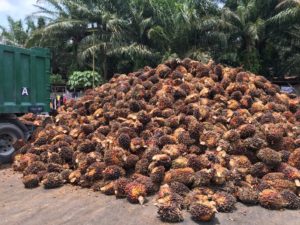Palm oil is in huge demand and plantations are plentiful and the crop generates income for millions of farmers. However, cultivation can take a heavy toll on the environment and local communities. Crops are often grown at the expense of precious rainforest and animal habitats, and the aftermath can be devastating. The Bornean orangutan is now critically endangered due to the excessive deforestation. But there is growing momentum for change, and currently 17 percent is certified as sustainable, by the Roundtable on Sustainable Palm Oil.
Most of the world’s palm oil comes from South-East Asia. In this month’s ‘Eco Solutions’, CNN travels to Malaysia find out how one group is teaching small farmers new practices, and lessons about long-term growth. As more companies sign up to sustainable supply chains, ‘Eco Solutions’ also catches up with cosmetics giant L’Oreal about why it makes good business sense to back responsibly-sourced ingredients.









